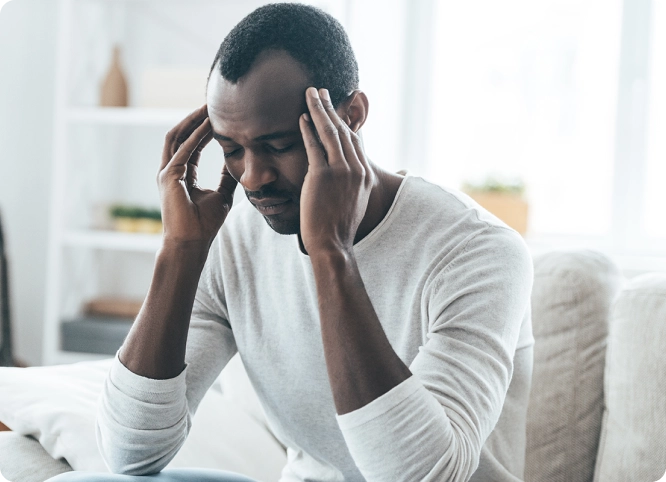Anxiety and panic attacks are a set of mental health challenges that involve a heightened state of worry and fear about everyday life. People grappling with these disorders might find themselves feeling unusually restless, having a hard time concentrating, getting easily annoyed, experiencing muscle tension, struggling with getting a good night’s sleep, and feeling tired most of the time.
What Is Generalized Anxiety Disorder
GAD stands for Generalized Anxiety Disorder, a mental health condition characterized by overwhelming, unmanageable worry about various daily matters like work, relationships, and health. This prolonged worry can disrupt one’s daily life.
At Living Spring Family Psychiatry, our Providers employ a holistic approach to treat GAD, combining therapy, medication, lifestyle adjustments, self-care, and support groups.
Possible panic attack symptoms include restlessness, trouble focusing, irritability, muscle tension, sleep problems, and fatigue.
Although GAD can cause significant distress, there are successful treatment methods available. Seeking guidance from a professional is important to create a tailored treatment plan that addresses your unique needs.

Symptoms Of Anxiety Disorder
Mood disorders can vary for each of us, but generally involve one or more of these signs or symptoms:

Lifestyle and Environmental
Causes Anxiety Disorder
- A high-stress job
- Homelessness
- Too little sleep
- Unstable home life
- Troubled or abusive relationships
- Financial problems
- Too many responsibilities
What Causes Anxiety Disorder
Generalized anxiety and panic disorders can affect anyone, but certain factors may make individuals more likely to develop the condition.
Biological factors such as genetics may predispose someone to developing GAD, and the condition tends to run in families.
Stressful environments, traumatic experiences, or childhood adversity can also play a role. GAD is associated with higher rates of certain other mental health conditions like depression and substance use.

Treatment Options for
Anxiety Disorder
Counselors, therapists, and psychiatrists can treat GAD in several ways. A patient may need therapy, medication, or a combination of both, to start feeling better. Psychotherapy treatments for GAD include Cognitive Behavioral Therapy (CBT). In CBT, patients learn to respond to triggers differently to reduce anxiety levels.
Frequently asked questions
Does anxiety go away on its own?
Generally, anxiety does not go away without treatment. Coping skills, psychotherapy, and medication
have been found to be effective in treating generalized anxiety.
What medications are there to treat anxiety disorders?
Four major classes of medications that are used in the treatment of anxiety disorders:
-
- SSRIs (Selective Serotonin Reuptake Inhibitors)
- SNRIs (Serotonin-Norepinephrine Reuptake Inhibitors)
- Benzodiazepines
- Tricyclic Antidepressants
How do I know I have anxiety and panic disorders?
Anxiety is a normal part of living. Its biological reaction is the way the body tells us something isn’t
right. But if your anxiety becomes overwhelming, persistent, or interferes with your daily activities, you
may have an anxiety disorder.


